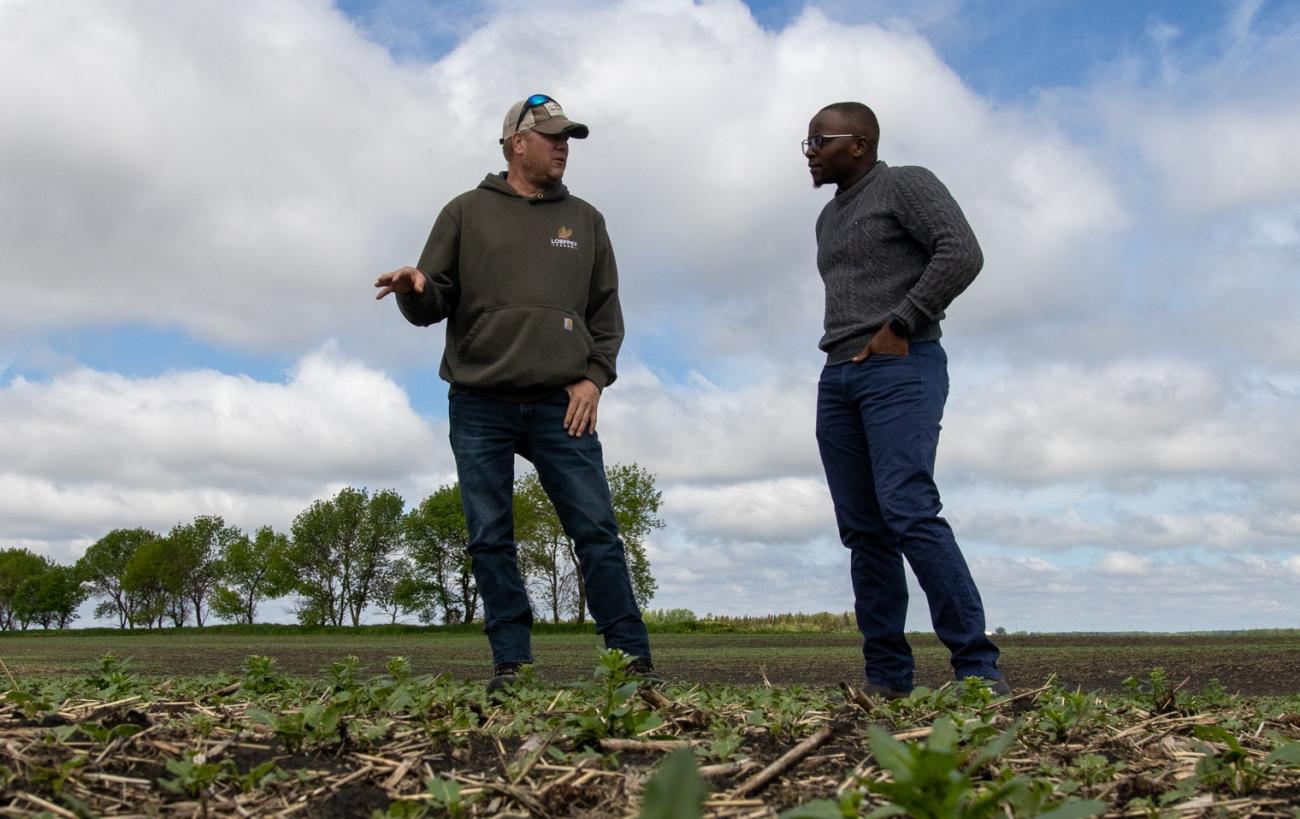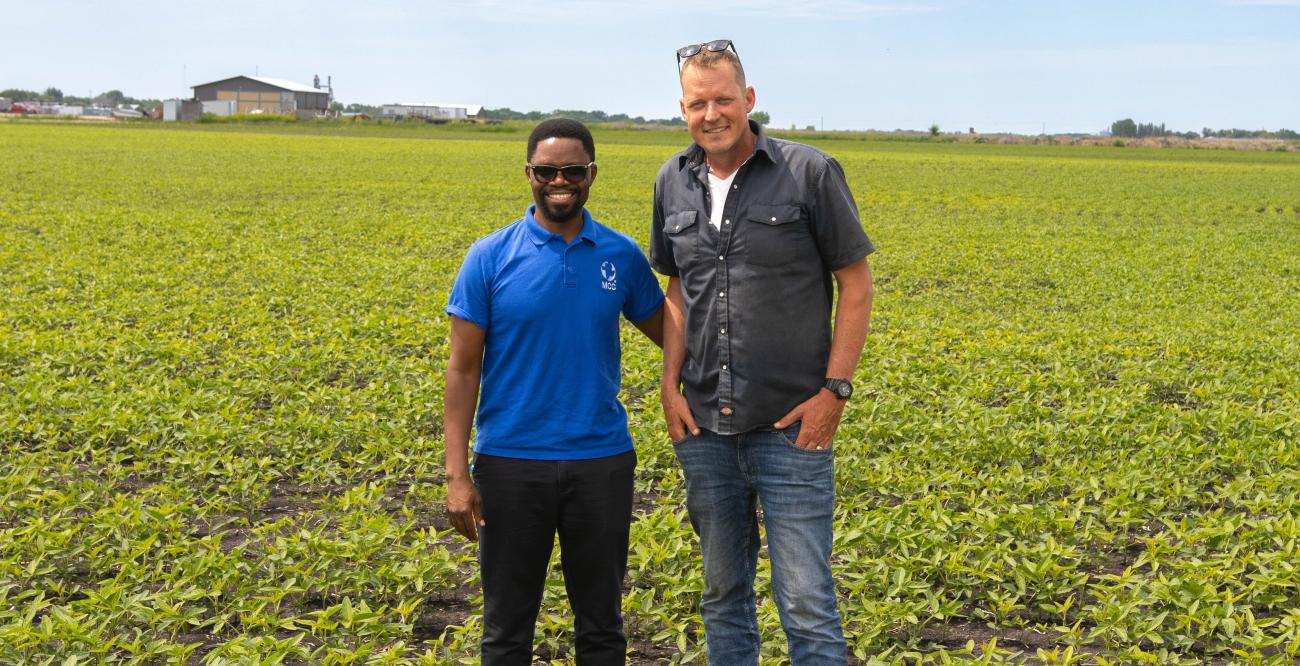In 2015, the Mennonite Central Committee (MCC) developed a unique initiative which brings farmer, sponsor, and the Canadian Foodgrains Bank (CFGB) together into a unique collaborative called Grow Hope.
One decade later, their effort to respond to global hunger continues to build steam. The projects spans fertile farmlands from Ontario to Alberta.
Three local farmers have been generous supporters of the Grow Hope program: Grant Dyck, the owner of Artel Farms in Niverville; Marcus Loeppky, owner of Loeppky Farms in Ritchot; and Jerry Waldner of Crystal Springs Hutterite Colony near Ste. Agathe.
All have dedicated a portion of their fields to the Grow Hope campaign in 2025, anticipating that the proceeds of the harvest in those sections will make it into the hands of some of the world’s hungriest citizens.
“I grew up watching my family always giving back,” Loeppky says. “I see how Grow Hope uses the work we do in such a valuable way. Look into it. Do some research and I think you’ll be pleasantly surprised.”
Dyck, too, sees the immeasurable benefit of programs like this one.
“It’s working directly with farmer and sponsor, [getting food] to those that need it,” says Dyck. “I love the simplicity of it.”
Like so many of MCC’s valuable projects, this one requires collaboration at different levels.
Firstly, the farmer donates a specific acreage to the cause. Through the MCC platform, individuals or groups can sign up to sponsor one or more acre of land. This year’s sponsorship came to $350 per acre, which covers the cost of seed, fertilizer, and fuel.
At harvest season, the farmer sells his crop and donates the proceeds to the CFGB. This yield can net $600 per acre or more.

Grow Hope farmer Marcus Loeppky (left) talks about his spring crop with Wesley Ncube, MCC Manitoba’s constituency relations coordinator.
In turn, the federal government matches Grow Hope proceeds by up to a four-to-one ratio, significantly multiplying the impact the campaign is able to make.
These funds help support emergency food aid and long-term food security projects around the world.
Through MCC, food baskets are delivered to displaced families. Others receive the tools and seeds they need to grow their own food, allowing them to send their children to school.
Since its launch, the Grow Hope campaign has raised nearly $2 million to support global food security.
“According to the United Nations, 343 million people are experiencing food insecurity today, driven by a wave of global crises including conflict, economic instability, and climate-related emergencies,” the MCC website states.
On Sunday, November 2, MCC Manitoba will host a private event at the Canadian Mennonite University where local farmers and supporters can reflect on their impact this year.
As the 2025 season comes to a close, MCC Manitoba invites new supporters to consider how they might get involved in the new year.


